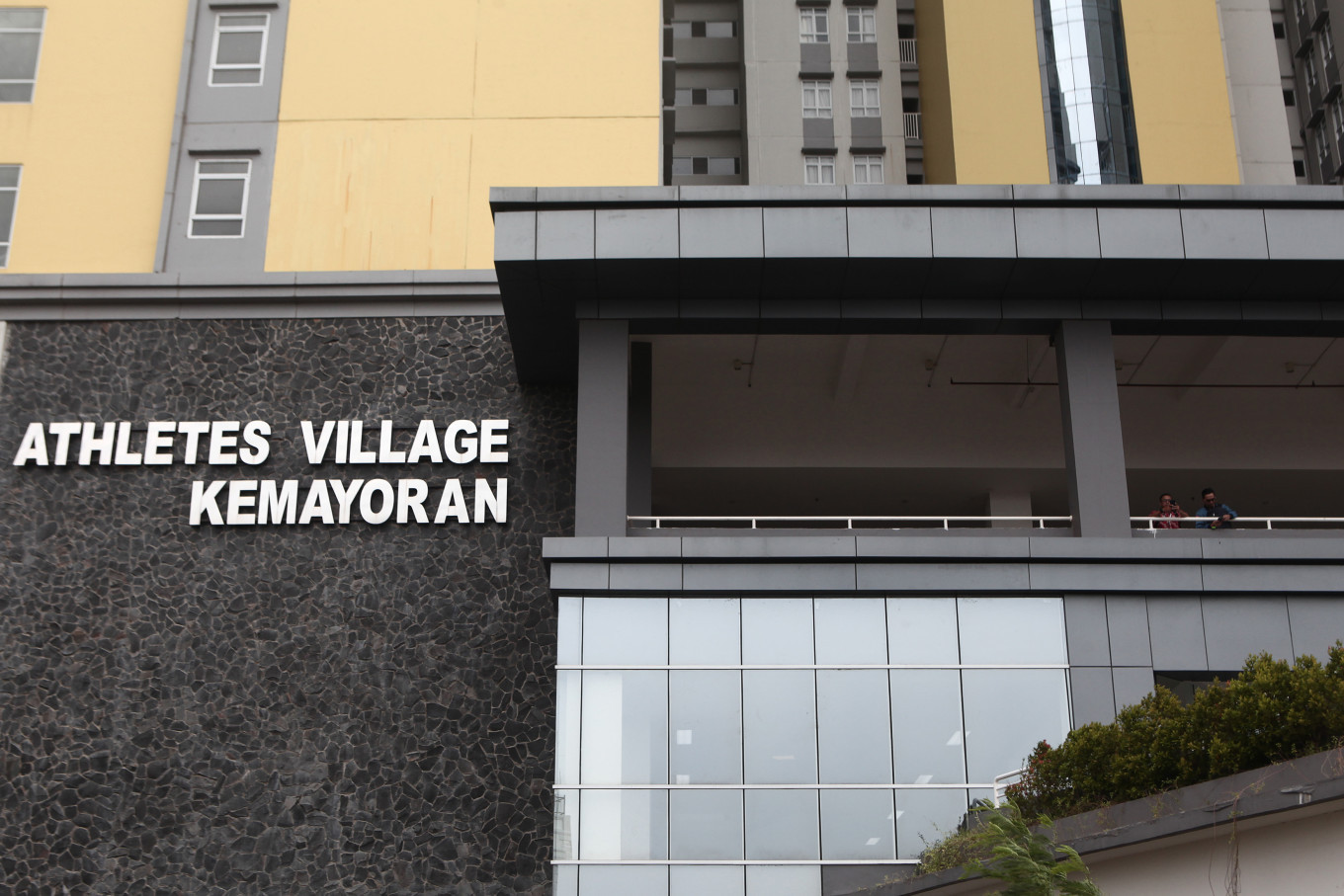Popular Reads
Top Results
Can't find what you're looking for?
View all search resultsPopular Reads
Top Results
Can't find what you're looking for?
View all search resultsDozens of COVID-19-positive people are in home-isolation in Jakarta. How does it work?
Questions arise as to how the health authorities make sure these people do not leave home and infect others.
Change text size
Gift Premium Articles
to Anyone
A
s hospitals in the capital are being overwhelmed with COVID-19 patients, the Jakarta administration is putting dozens of positive cases with mild symptoms in home isolation. However, questions arise as to how the health authorities are making sure these people do not leave home and infect others.
On Thursday, out of the 208 COVID-19-positive patients in Jakarta, 70 people were under a 14-day home-isolation or self-quarantine, according to the administration's coronavirus data provider, corona.jakarta.go.id. On Friday, the number in home isolation decreased to 57 among 211 confirmed cases.
"The important thing is for them to limit their interactions, staying in their own rooms," the Jakarta Health Agency's head of disease control and prevention division, Dwi Oktavia, told The Jakarta Post at City Hall on Thursday. "People in home-isolation are in relatively good condition, not a critical one."
Dwi, however, did not explain how the health authorities would monitor the movements of the infected patients to make sure they stayed at home.
Among more than 300 cases nationwide, 211 are in Jakarta, making the capital Indonesia’s epicenter for the outbreak.
The government has ordered the retrofitting of the athletes’ apartment complex in Kemayoran, Central Jakarta, which can accommodate 15,000 people, and state-owned hotels to make them emergency wards. However, the facilities are not yet ready.
Health Minister Terawan Agus Putranto signed on Monday a protocol establishing guidelines for home-isolation or self-quarantine aimed at curbing the spread of the COVID-19 coronavirus.
The protocol is designed for suspected COVID-19 patients who show symptoms such as fever and respiratory infection and have a travel history to infected places or interactions with confirmed cases in the previous 14 days. However, the protocol also extended to confirmed cases, COVID-19 government spokesperson, Achmad Yurianto, said on Thursday.
The protocol states that monitored persons should, among other things, stay home for 14 days, use a separate room in the house, maintain a one-meter distance from others, use a face mask, perform daily temperature checks, use separate sets of cutlery and toiletries and spray disinfectant around the house.
The protocol relies on the conscience of the patients themselves as it does not carry any consequence if the patient does not follow all the guidelines.
For COVID-19-positive people, the home-isolation is monitored by their respective health community centers (Puskesmas), according to Yurianto. However, he elaborated on the monitoring protocol.
Yurianto advised people to consult with doctors from time to time, specifically mentioning one brand of app-based health care in his text message to the Post.
Other countries also practice home-isolation for patients who tested positive but have mild symptoms. A 50-year-old Indonesian woman, for example, was observing a 14-day home-isolation at her home in Melbourne, Australia, after she tested positive for the coronavirus on March 8.
According to the American Centers for Disease Control and Prevention (CDC), home-isolation requires, among other things, the patient to have a stable enough condition, an appropriate caregiver, a separate bedroom and protective equipment such as gloves and face masks. The patient is also expected to follow recommended precautions such as respiratory and cough hygiene, as well as cough etiquette.
The former head of the National Committee for Avian Flu Control and Pandemic Preparedness between 2006 and 2010, Bayu Krishnamurti, said there were two types of policies to contain virus. The first involves forcible confinement and the other relies on people’s consciences.
“The forcible model includes total lockdown, prohibition on leaving home. That based on conscience includes the suggestion for any people, healthy or suspected cases, to not leave home,” he said.
If the home isolation is done with the forcible method, the government has to have detailed protocols on how to enforce the rules, he said.
Bayu said so far the government had used the “conscience” type. He also said at the moment it was not feasible to deploy a special health worker to monitor each patient under voluntary home-isolation. (dfr)










